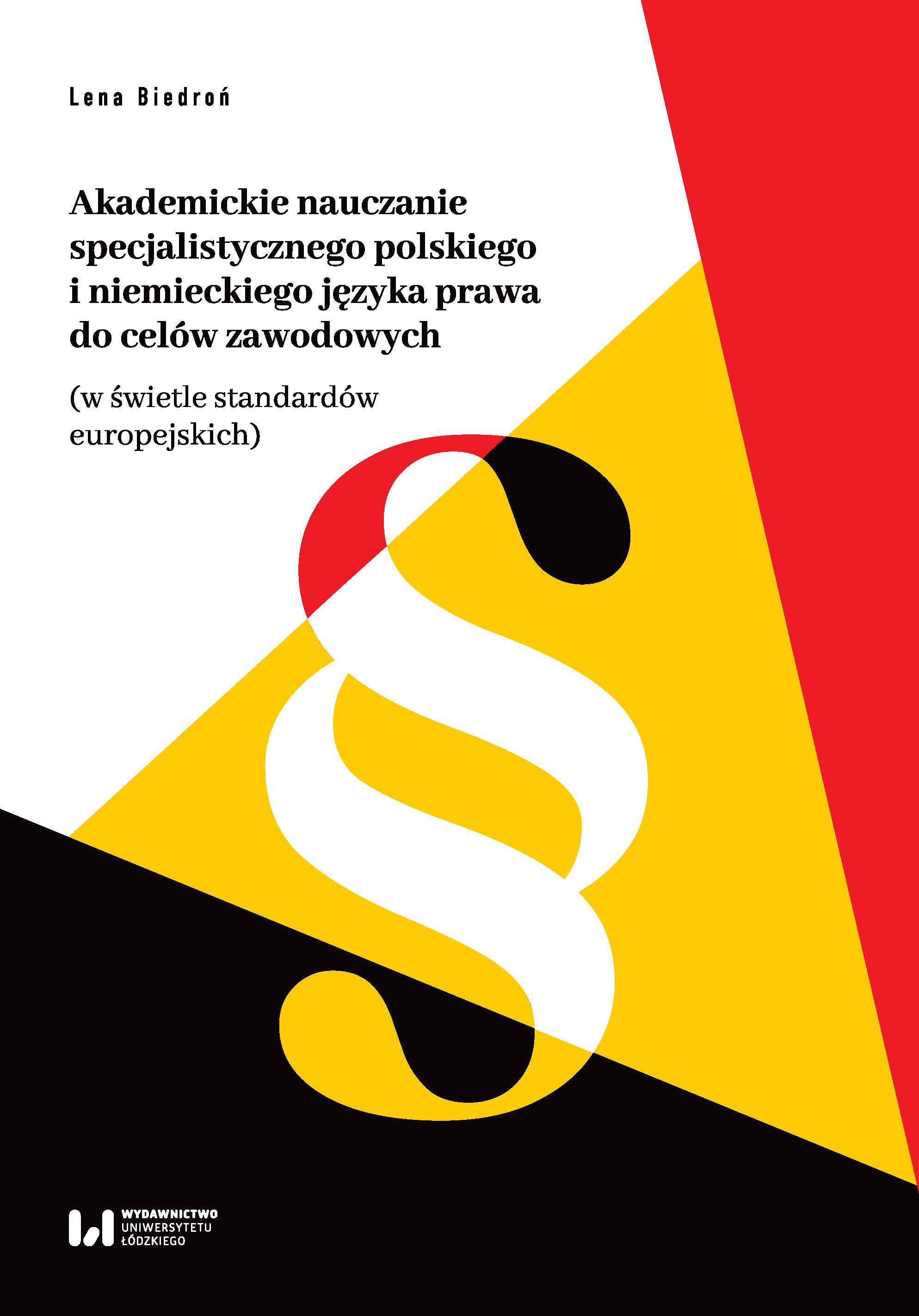Akademickie nauczanie specjalistycznego polskiego i niemieckiego języka prawa do celów zawodowych (w świetle standardów europejskich)
The academic teaching of Polish and German legal languages for specific purposes (in the light of European standards)
Author(s): Lena Biedroń
Subject(s): Language and Literature Studies, Foreign languages learning, Eastern Slavic Languages
Published by: Wydawnictwo Uniwersytetu Łódzkiego
Keywords: convergence of legal regulations; academic language education in the EU; foreign language education in law faculties in Poland and Germany; glottodidactics
Summary/Abstract: The widespread Europeanization of law within the European Union leads to the convergence of cultures and legal systems, the elimination of national legal distinctiveness, and the harmonisation of legal frameworks. Knowledge of only national legislation is insufficient, as the problems lawyers face often involve legal regulations of several countries. The ability to use multiple foreign languages enables future lawyers to learn about other legal systems and practice law in an international environment.European and Polish glottodidactics are adapting to the changing reality of language education. Both the European Union and the Council of Europe support the EU member states in implementing language policies consistent with the European education policy, including the selection of teaching methods and education principles. The tools created by the Council of Europe and the European Union represent an attempt to standardize European language education and provide a solid foundation for the practical teaching of foreign languages and the reflective application of innovative methods and work forms.The prepared monograph was developed in a comparative format, aligned with the assumptions of the comparative glottodidactic concept created by Przemysław Gębal. The comparison of the systems of academic language education in Poland and Germany, in light of contemporary European language education standards, enabled detailed understanding of common elements and a series of differences in the language education of future lawyers. Examining language education experiences of law programmes at selected German universities and comparing them with the law faculties of three Polish universities encourages deeper reflection on effective methods of educating law students and the search for innovative didactic-methodological solutions.Given the close proximity of Poland and Germany and their economic cooperation, the analysis of language education programs in Germany and Poland may bring tangible benefits for the transfer of glottodidactic thought.
- E-ISBN-13: 978-83-8331-626-0
- Print-ISBN-13: 978-83-8331-625-3
- Page Count: 322
- Publication Year: 2024
- Language: Polish
- eBook-PDF
- Table of Content

